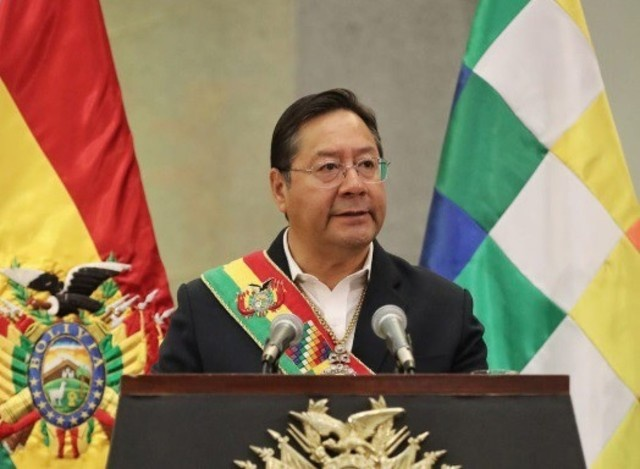Peace. Bolivian President Luis Arce has the power to call a consultative referendum without prior approval from the Plurinational Legislative Assembly (Congress), said the vice president of the Supreme Electoral Tribunal (TSE), Francisco Vargas, on Tuesday.
Vargas explained that Bolivian legislation allows a referendum to be called directly by the president when it is a consultative process. This type of referendum makes it easier for the head of state to obtain a direct opinion from the people on certain issues, without the need for the decision to have an immediate binding effect, unlike constitutional referendums that require legislative approval.
The debate over this presidential power gained momentum after Arce, in his speech marking Bolivia’s 199th anniversary of independence on August 6, proposed holding a referendum on issues such as hydrocarbon subsidies, the distribution of legislative seats and limits on presidential re-election.
The government intends for this referendum to coincide with the judicial elections scheduled for December 1, 2024.
However, the TSE vice president stressed that, to date, the Executive has not submitted a formal request for the referendum to be held nor specified the questions and issues to be consulted.
Once the formal request has been submitted, the Electoral Body must evaluate the proposed questions to ensure that they are clear, precise and impartial. After approval, the president must submit them to the Plurinational Constitutional Court (TCP) for final review.
The possibility of the president calling a referendum without the approval of the Assembly has generated controversy, as while some political sectors and legal experts question the constitutionality of such a call, government supporters defend the measure as legal and necessary.
The government expects the TCP to declare unconstitutional Article 152 of the Constitutional Procedural Code and the penultimate paragraph of Article 23 of Law 026 on the Electoral Regime. This step is crucial to provide the head of state with the necessary tools to call for a constitutional referendum, thus overcoming the limitations of a consultative referendum.
In coordination with the Executive, the pro-government deputy Juan Jáuregui presented an Abstract Action of Unconstitutionality before the TCP against the norms in question, which is seen by the government as a key step to allow President Arce to advance in his referendum proposal.
The Minister of Justice, Iván Lima, citing articles 410 and 411 of the Constitution, recently stated that “the president is authorized to carry out a complete reform of the Constitution,” and argued that “there is a clear legal principle: he who can do the most, can do the least.”
He also acknowledged that the Abstract Action of Unconstitutionality presented by Deputy Jáuregui, and already admitted by the TCP, is essential for the government’s objective of the referendum to prosper.
#TSE #approves #Luis #Arces #authority #call #consultative #referendum
– 2024-08-23 02:22:08
